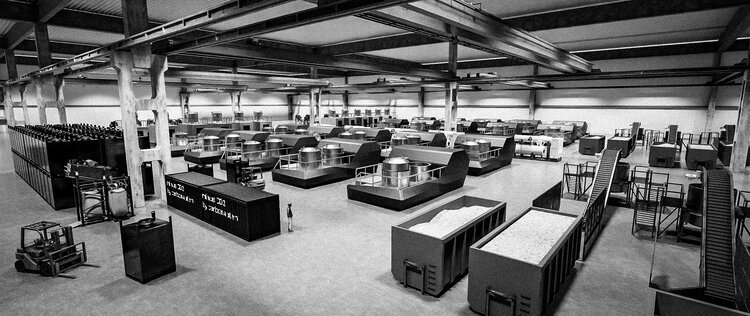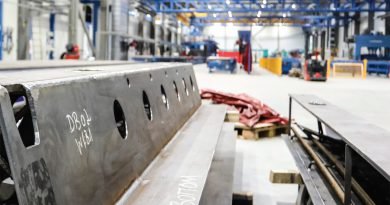Finalists of Green Alley Award seek to include garments into circular economy
The finalists of the 2021 Green Alley Award have been announced: A carbon negative biomaterial, an ecological membrane for outdoor wear, sustainable plastic made from old clothes, an online B2B platform for recycling contracts, a home-compostable bioplastic and a digital traceability platform for the fashion industry are the selected business ideas that help advance the circular economy in Europe.
Since 2014, Landbell Group has presented the Green Alley Award to startups whose innovative products, services or technologies help make the most efficient use of resources and reduce waste drastically. Six startups have now been selected from a total of 189 applications and pitched at the Green Alley Award on April 22, 2021. The award ceremony with finalists from Germany, Sweden and Switzerland was held virtually this year because of the coronavirus pandemic. The winner of the finals receive the €25,000 prize.
“I am glad that we received so many applications in this challenging year. It shows that the entrepreneurial spirit is unbroken even in times of crisis,” says Jan Patrick Schulz, CEO of Landbell Group, a global provider of environmental and chemical compliance solutions. “Right now, young companies need even more support. With the Green Alley Award, we promote sustainable startups and connect them to a network of circular economy experts across Europe.”
The finalists
Despite the pandemic, the Green Alley Award wants to bring central questions of the circular economy back into focus: How can we use our resources more sustainably, preserve nature and protect the environment? Six startups with outstanding solutions to these problems have made it to the finals in 2021.
Carbonauten (Germany): Reducing CO2 in our atmosphere is an important result of Carbonauten’s innovative biomaterial made of wooden residues. Instead of emitting greenhouse gases while rotting, the wood is turned into carbon and combined with different binders. The resulting materials can replace conventional plastics and building materials for various industries. In this way, one tonne of Carbonauten’s biomaterial can store an equivalent of more than 3 tonnes of CO2.
Dimpora (Switzerland): Outdoor wear should be breathable and protect you from wind and water. But usually these features involve chemical processes and come with high costs for human health and the environment. Dimpora, a Swiss startup, has now developed a high-performing alternative to conventional toxic membranes that does not use any toxic chemicals at all in the production process. The membrane can also be made biodegradable and can be added to any kind of garment. In this way, outdoor activities become completely natural again.
Kleiderly (Germany): Berlin-based startup, Kleiderly, has the mission to solve two environmental problems at once: the growing amount of garments wasted each year as well as the rising demand for oil-based thermoplastics. The startup recycles old clothing and textile waste and turns it into a sustainable plastic alternative that can be used to produce any kind of plastic goods, from eyewear, to clothes hangers or even furniture.
ReSync (Germany): Everyday, businesses produce various kinds of waste they have to dispose of in compliance with legal obligations. An easy way to find the right recycler for their needs is an online B2B recycling platform developed by ReSync. The platform matches companies with recycling contractors that are conveniently located and offer value for money. The positive side-effects are improved waste separation and increased collection rates.
Traceless Materials (Germany): The invention of Traceless Materials claims to be one step ahead of other bioplastics on the market today: Thanks to the special technology developed by the German startup, agricultural industry residues are transformed into a sustainable alternative to film or hard plastic packaging or plastic coating. The result is an all-natural material that is not only completely bio-based but can also be composted in your organic waste bin within two to nine weeks.
TrusTrace (Sweden): From fiber to garment, fashion brands have to deal with complex production processes and numerous suppliers. Therefore, a digital platform developed by Swedish startup TrusTrace promises to shed more light on the materials in fashion products and how they are manufactured. This helps fashion companies to ensure that supply chains align with their sustainability goals and even enables the product verification for circular business models.
All six finalists will presented their business idea online on April 22, 2021 and answered the questions of the jury.




